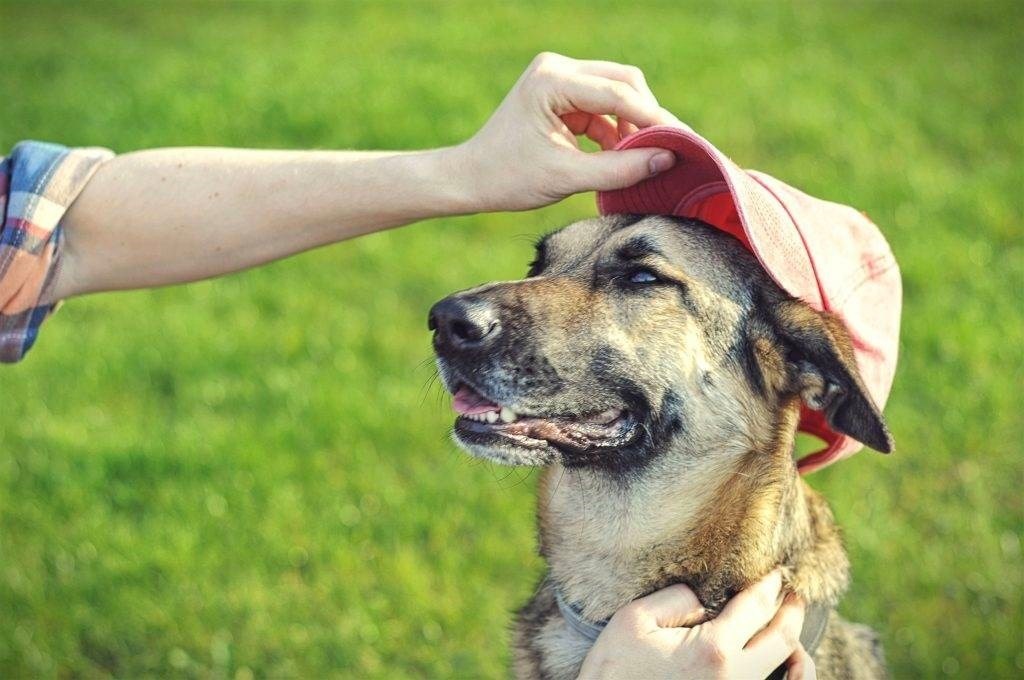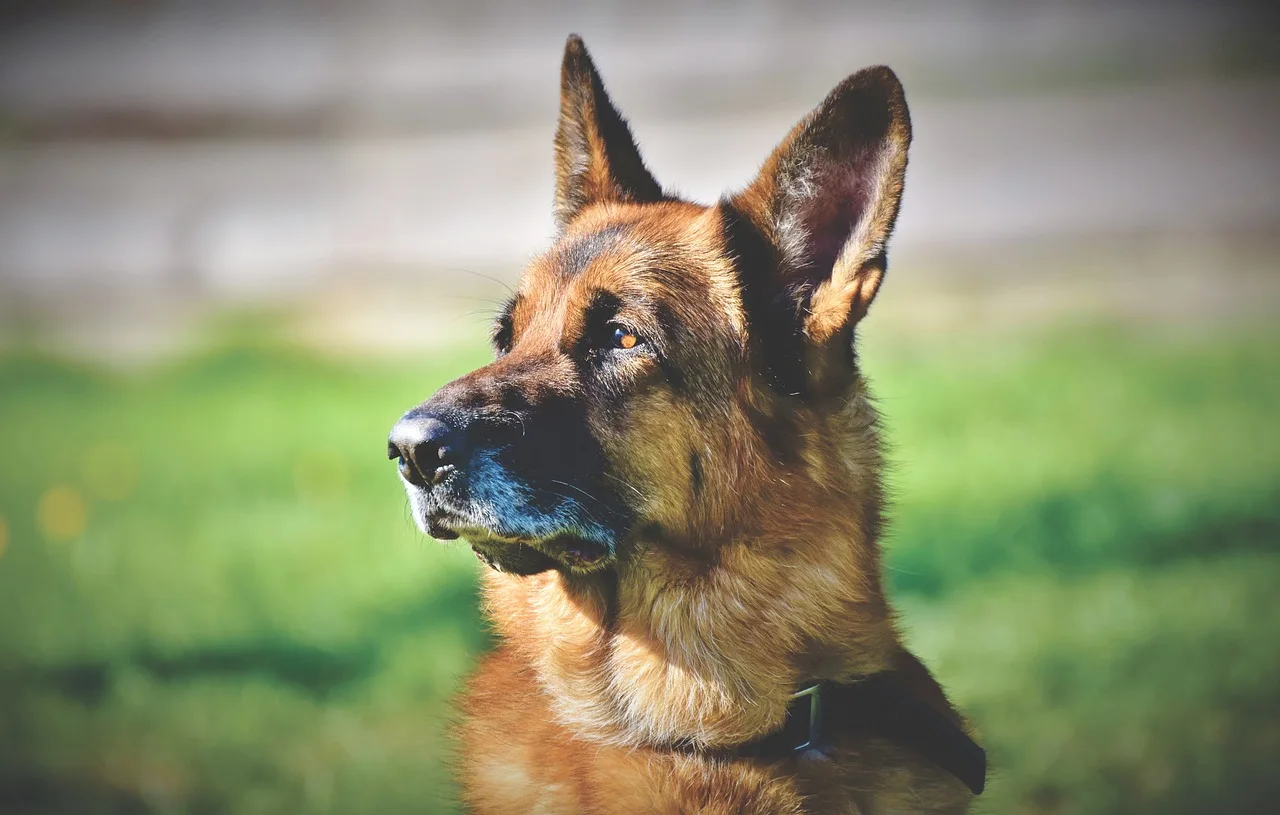
Dog owners, have you ever come home to find your dog chewing on household items, breaking furniture, defecating all over the floor? These could be signs of separation anxiety.
Separation anxiety can be a pain not only for the owner, but also for the pet itself. Pets can sense human emotions, but humans don't necessarily have access to the pet's true heart. There are a lot of dogs out there that may have a lot of out-of-control behavior due to separation anxiety, but the owner doesn't know and can't understand, resulting in the pet being abandoned or repeatedly returned to the adoption.
For owners, are you worried that separation anxiety is a terminal mental illness for dogs?
In fact, separation anxiety is not that can not be improved, but the owners do not understand that these behaviors are symptoms of illness, often feel that the baby is not good, out of control, difficult to teach! We can observe from several aspects, first to understand what kind of situation, is the dog suffering from separation anxiety disorder?
What is Separation Anxiety in Dogs?
Table of Contents
Some dogs suffering from separation anxiety become agitated when their guardians prepare to leave. Others seem anxious or depressed prior to their guardians’ departure or when their guardians aren’t present. Some try to prevent their guardians from leaving.[1]
Be alert when your dog shows any of the following:
- When family members leave briefly, they become agitated and bark
- Decreased appetite or no eating or drinking
- Constantly licking and biting hands and feet or body
- They are too sensitive to environmental sounds to rest or sleep at all
However, we can not always be beside the dog, to make a living, owners still have to go out every day! So how do you know if a dog is showing signs of self-abuse anxiety?
Behavioral experts advise owners to watch their dogs when they are home alone on a pet camera to see how anxious their dogs are when their owners are away. So what can you do when you find a dog with these conditions? Owners must do their homework to understand the causes of separation anxiety:
There are many reasons for separation anxiety in dogs, including lack of good interaction with people or other animals at a young age, lack of companionship, moving to a new home, changes in family life, etc., which may cause separation anxiety in dogs. Dr Liqun Yang, of the National Animal Hospital, added: 'Some dogs have become so attached to humans since childhood that they develop separation anxiety once separated, which is simply a lack of independence.' When you leave home, he will easily have a great sense of contrast, because he only has you in his world. Without you, his life will be gray, especially his abandoned baby. How can I improve it?

What is the difference between Separation Anxiety and Isolation Anxiety?
Separation anxiety in dogs describes a condition in which a dog exhibits distress and behavior problems when separated from its handler. Separation anxiety typically manifests within minutes of departure of the handler. It is not fully understood why some dogs suffer from separation anxiety and others do not. The diagnosis process often leads to a misdiagnosis as it is difficult to differentiate from other medical and behavioral problems. The behavior may be secondary to an underlying medical condition. With chronic stress, impairments to physiological health can manifest. Increased stress in the dog alters hormone levels, thus decreasing natural immunity to various health problems. A visit to the veterinarian is always recommended if a dog's behavior changes suddenly.[2]
10 Possible Causes Of Separation Anxiety In Dogs
There is no single reason why dogs develop separation anxiety. Different dog breeds may be more susceptible than others. Some dogs are fine for most of their lives, only to become anxious later in life. Others may suffer sudden separation anxiety as a result of trauma.
- No experience of being alone
- Too much dependence on the owner
- Just moved to a new place, unfamiliar
- Previously abandoned
- Not being socialized like a puppy
- A new family member
- Adopted back and does not feel safe
- Family member left
- Genetic predisposition
- Habitual daily routines are altered
If your dog is acting abnormally, ask yourself if they have experienced one of the conditions listed above.
10 Common Myths About Separation Anxiety in Dogs
There is no single reason why dogs develop separation anxiety. Different dog breeds may be more susceptible than others. Some dogs are fine for most of their lives, only to become anxious later in life. Others may suffer sudden separation anxiety as a result of trauma.
- No experience of being alone
- Too much dependence on the owner
- Just moved to a new place, unfamiliar
- Previously abandoned
- Not being socialized like a puppy
- A new family member
- Adopted back and does not feel safe
- Family member left
- Genetic predisposition
- Habitual daily routines are altered
If your dog is acting abnormally, ask yourself if they have experienced one of the situations listed above.
10 Common Myths About Separation Anxiety in Dogs
Myth #1 - Getting a second dog will cure it
You may end up with two dogs who suffer from separation anxiety.
Yes, that's right, this can happen if this new dog becomes anxious due to your dog's distress, or if the new dog comes with separation anxiety tendencies that you don't even know about.
Getting a second dog will not usually solve this problem. This is because separation anxiety is usually triggered by the separation of the dog from the person it is highly dependent on. So, in this case, getting a second pet may not solve the problem.
The following are situations in which you may want to consider a second dog.
Have you ever had a second dog, but when they died, the remaining dog began to exhibit separation anxiety.
Myth #2 - Dogs with separation anxiety must be kept in a crate
Remember when you brought your puppy home and everyone told you that you needed to crate train your puppy, right? Well, they weren't wrong, crates can exacerbate the problem. Putting your dog in an escape-proof crate treats the symptoms (when the dog can't get to the door frame, it can't break your door frame), not the cause. The dog remains in a state of extreme panic; he just can't express it. In many cases, this ends up making the anxiety worse.
Myth #3 - It's just a phase they will get rid of it
While our dogs do have different phases in their lives, separation anxiety is not a phase. Treating it as "just a phase" or ignoring it won't make it go away. Like all panic disorders (human and dog alike), separation anxiety is not something that dogs simply "get rid of". It's a problem that can affect any dog - regardless of age or breed. Letting your dog know that you will always be home is the only way to ease his pain and help him stay calm when he's alone.
Myth #4 - Exercise will heal him
Exercise is great for most situations, and every dog needs proper exercise. It provides an outlet for pent-up energy and can also serve as an opportunity to meet your dog's mental stimulation and problem-solving needs. Exercise is great, it helps your dog's health, and it has no downside - what I'm trying to convey here is that it alone may not be enough to keep them calm when you're away. Remember, separation anxiety is a physiological response to fear and exercise will not make the fear go away. Exercise must be combined with other treatments.
Myth #5 - You shouldn't let your dog follow you
Once again, we have studied dogs that we call "Velcro dogs" and they may not necessarily suffer from separation anxiety, but let's face it, dogs are pack animals and we are their social group. It may be one of the indicators that we know dogs suffer from separation anxiety as well as excessive greeting.
Myth #6 - Medications should be a last resort
Many medications have a significant improvement in separation anxiety, so if medications can help a dog overcome anxiety with a combination of anxiety-free separation programs, why wait?
Myth #5 Letting my dog sleep in bed can cause separation anxiety
There's nothing wrong with letting your pup snuggle in your bed or sleep in your room. There is no evidence that dogs who are loved too much can develop separation anxiety. If this were true, there would be millions of dogs with this problem.
Honestly, nothing is harder on our dogs than napping in our bed or on the couch.
But it's important to note that if your dog already suffers from separation anxiety, you may have a harder time teaching him that it's safe to be alone if he sleeps in your bed. You might consider giving your dog a safe place to sleep, initially next to your bed. Slowly move their bed away from you, preferably to outside your bedroom.
Myth #8: My dog is mad at me
If your dog does cause damage to your house while you are away and you exclude lack of exercise and enrichment and too much time alone to the point of boredom, then you may be dealing with a dog who suffers from separation anxiety. But let's get real - if it's separation anxiety if your dog suffers from separation anxiety or isolation pain and inappropriate destruction, poop, or pee. Or worse, if he hurts himself when you're not around, he means absolutely no harm. A dog with separation anxiety is distressed and afraid to be left alone without you. The destruction he leaves behind is the result of pure panic.
Myth #9: Once you've dealt with separation anxiety, it's gone for good
There is a common misconception that once you find a solution to canine separation anxiety, it will be cured forever. Now in many cases, this is where many well-meaning dog parents are caught off guard. But the truth is that separation anxiety can reappear in the future.
This is especially true when habits change. Like moving, having a baby, or a change in work schedule.
Any life change or stress that may affect your dog's daily life can trigger these separation issues.
Myth #10: Establishing a close bond with your dog can lead to separation anxiety
Creating a close bond with your dog is one of the best parts of sharing your life with your dog. Darren told us about some of the research he's read on this myth.
"There's plenty of research confirming that activities like sharing a couch or bed are not associated with separation anxiety, so you definitely shouldn't worry about building a close bond with your dog!"


